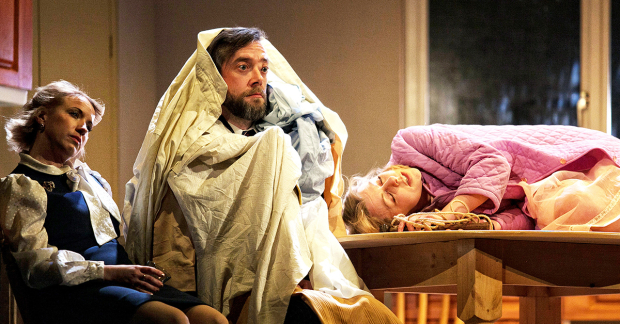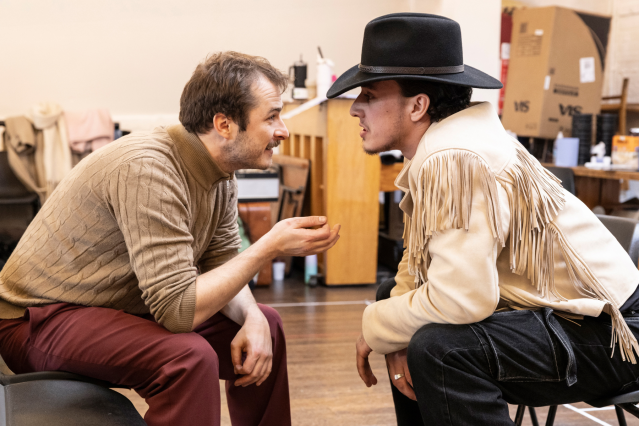
© Sheils Burnett
London Classic Theatre starts a 15-venue tour of Absurd Person Singular at Derby Theatre – or, rather, re-starts as this production was nipped in the bud when lockdown first struck. It says much for theatre's resilience that LCT has been able to put together such an extensive tour with an unchanged 2020 cast.
Further reassuring signs of continuity come in the fact that Alan Ayckbourn has just opened his 85th play in Scarborough while this 49-year-old work comes up fresh, funny and sometimes very nasty. Classifying Ayckbourn is a perilous activity, but in the 1970s he had a penchant for black farce combined with social satire – and that's the territory Absurd Person Singular inhabits.
Director Michael Cabot points out shrewdly in the programme that Ayckbourn is not just a playwright of the middle classes, more a canny observer of social mobility. In Absurd Person Singular he nailed the nuances of class distinction and the dangers of holding social gatherings almost as bleakly as Mike Leigh's Abigail's Party five years later.
Three acts, three Christmases, three couples. Sidney Hopcroft is uneducated and charmless, with little to recommend him except a desire to succeed. The play starts with him and his obsessively housewifely spouse, Jane, preparing compulsively for the arrival of their Christmas guests: banker Ronald and his wife Marion, architect Geoffrey and his wife Eva. These are they who must be impressed!
By act three all has changed. Ronald's bank depends on Sidney's deposits, Geoffrey's career, after the collapse (literally) of his grandiose schemes, hangs on getting work on Sidney's nasty little housing projects. Sidney once needed to flatter them; now he can make them play his appalling party games. But Sidney is not Iago or Machiavelli; the downfall of his social "superiors" is caused by their own laziness or dilettantism, not helped by wives who fall victim to alcohol or anti-depressants.
It is a difficult play in which to achieve character progression and Cabot's production is most successful with the Hopcrofts. Felicity Houlbrooke is delightful as Jane, still obsessively cleaning Geoffrey and Eva's kitchen as their world collapses around them, and Paul Sandys' aspirations as Sidney, at first nervous, then with growing self-possession, always convince, though his final triumph could be more chilling.
Graham O'Mara's ineffectual Ronald and John Dorney's louche Geoffrey are amiable enough, but have no defence against disaster. Eva moves from the farcically suicidal (that is not a typo, just Ayckbourn being subversive again) to the well-balanced and supportive – and Helen Keeley makes the most of the shifts in character. Rosanna Miles lurches from the toe-curlingly snobbish to the spectacularly drunk as Marion.
Simon Scullion's set is a diamond-shaped cut-out, with flats on two sides. The adaptations to three different rooms are smartly done and the space limitations of kitchen life are effectively brought out, but sometimes, notably in act three, there are problems of grouping and masking.












